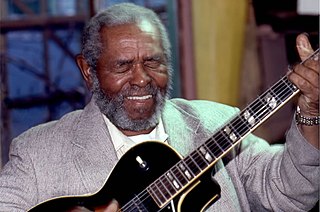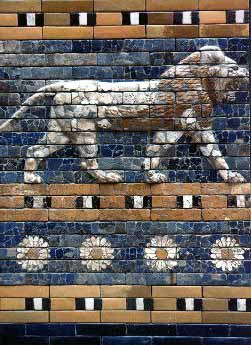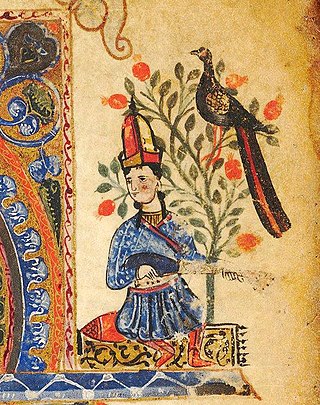
Walter Brown "Brownie" McGhee was an American folk music and Piedmont blues singer and guitarist, best known for his collaboration with the harmonica player Sonny Terry.

The music of Iraq or Iraqi music,, also known as the music of Mesopotamia, encompasses the music of a number of ethnic groups and musical genres. Ethnically, it includes Mesopotamian Arabic, Assyrian, Kurdish and the music of Turkmen, among others. Apart from the traditional music of these peoples, Iraqi music includes contemporary music styles such as pop, rock, soul and urban contemporary.

The music of Armenia has its origins in the Armenian highlands, dating back to the 3rd millennium BCE, and is a long-standing musical tradition that encompasses diverse secular and religious, or sacred, music. Folk music was notably collected and transcribed by Komitas Vardapet, a prominent composer and musicologist, in the late nineteenth and early twentieth centuries, who is also considered the founder of the modern Armenian national school of music. Armenian music has been presented internationally by numerous artists, such as composers Aram Khachaturian, Alexander Arutiunian, Arno Babajanian, Haig Gudenian, and Karen Kavaleryan as well as by traditional performers such as duduk player Djivan Gasparyan.

The vast majority of the inhabitants of the United States are immigrants or descendants of immigrants. This article will focus on the music of these communities and discuss its roots in countries across Africa, Europe and Asia, excluding only Native American music, indigenous and immigrant Latinos, Puerto Rican music, Hawaiian music and African American music. The music of Irish- and Scottish-Americans will be a special focus, due to their extreme influence on Appalachian folk music and other genres. These sorts of music are often sustained and promoted by a variety of ethnic organizations.

Saunders Terrell, known as Sonny Terry, was an American Piedmont blues and folk musician, who was known for his energetic blues harmonica style, which frequently included vocal whoops and hollers and occasionally imitations of trains and fox hunts.

The cümbüş is a Turkish stringed instrument of relatively modern origin. It was developed in 1930 by Zeynel Abidin Cümbüş (1881–1947) as an oud-like instrument that could be heard as part of a larger ensemble.
Ella Jenkins is an American folk singer and actress. Dubbed "The First Lady of the Children's Folk Song" by the Wisconsin State Journal, she has been a leading performer of children's music for over fifty years. Her album, Multicultural Children's Songs (1995), has long been the most popular Smithsonian Folkways release. She has appeared on numerous children's television programs and in 2004, she received a Grammy Lifetime Achievement Award.

Udi Hrant Kenkulian, often referred to as Udi Hrant or as Hrant Emre was an oud player of Turkish classical music, and a key transitional figure in its transformation into a contemporary style of popular music. He was an ethnic Armenian citizen of Turkey who spent most of his life in Turkey and wrote most of his lyrics in Turkish. He concurrently composed and performed in Armenian as well, although to a much lesser degree. Kenkulian recorded numerous sides in the United States and Europe during his travels in the mid-20th century.

Mike Seeger was an American folk musician and folklorist. He was a distinctive singer and an accomplished musician who played autoharp, banjo, fiddle, dulcimer, guitar, mouth harp, mandolin, dobro, jaw harp, and pan pipes. Seeger, a half-brother of Pete Seeger, produced more than 30 documentary recordings, and performed in more than 40 other recordings. He desired to make known the caretakers of culture that inspired and taught him.

Delano Floyd McCoury is an American bluegrass musician. As leader of the Del McCoury Band, he plays guitar and sings lead vocals along with his two sons, Ronnie McCoury and Rob McCoury, who play mandolin and banjo respectively. In June 2010, he received a National Heritage Fellowship lifetime achievement award from the National Endowment for the Arts and in 2011 he was elected into the International Bluegrass Music Hall of Fame.
The National Heritage Fellowship is a lifetime honor presented to master folk and traditional artists by the National Endowment for the Arts. Similar to Japan's Living National Treasure award, the Fellowship is the United States government's highest honor in the folk and traditional arts. It is a one-time only award and fellows must be living citizens or permanent residents of the United States. Each year, fellowships are presented to between nine and fifteen artists or groups at a ceremony in Washington, D.C.

Michael Louis Doucet is an American singer-songwriter and musician best known as the founder of the Cajun band BeauSoleil.

Rahim AlHaj is an Iraqi American oud musician and composer.

Dewey Balfa was an American Cajun fiddler and singer who contributed significantly to the popularity of Cajun music. Balfa was born near Mamou, Louisiana. He is perhaps best known for his 1964 performance at the Newport Folk Festival with Gladius Thibodeaux and Vinus LeJeune, where the group received an enthusiastic response from over seventeen thousand audience members. He sang the song "Parlez Nous à Boire" in the 1981 cult film Southern Comfort, in which he had a small role.

Tamzara is a folk dance native to Armenian Highlands. It is today performed by Armenians, Assyrians, Azerbaijanis, and Greeks.

Cephas & Wiggins was an American acoustic blues duo, composed of the guitarist John Cephas and the harmonica player Phil Wiggins. They were known for playing Piedmont blues.
Ara Dinkjian is an Armenian-American musician. He is the founder of the band Night Ark. Dinkjian is considered one of the top oud players in the world, his compositions have been recorded in thirteen different languages, which include the multi-platinum hit "Dinata" which was performed in the closing ceremonies of the 2004 Olympic Games in Athens.
Hakobyan is an Armenian surname with the meaning "son of Hakob". This surname has multitudes of transliterations into Latin alphabet, including Acopian, Acopyan, Agopian, Agopyan, Akobian, Akobyan, Akopyan, Hagopian, Hagopyan, Hakobian, and others. Similar Russified surname: Akopov. Variants: Hakobyants, Hagopiantz.
Harold G. Hagopian is an American violinist, entrepreneur, record producer and founder of Traditional Crossroads world music record label in 1993.

Suni Paz is an Argentinian singer, songwriter, guitarist, poet, folklorist, translator, and teacher, who has recorded and has been published extensively. Paz is part of the progressive Latin American music movement known as nueva canción.















